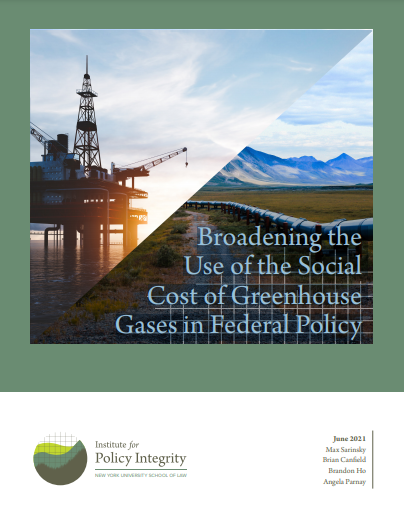This working paper is forthcoming in the Yale Journal on Regulation as "The Social Cost of Greenhouse Gases: Legal, Economic, and Institutional Perspective."
The damage estimates developed by the Interagency Working Group on the Social Cost of Greenhouse Gases have been widely recognized for using the best available science and economics to estimate the cost that society bears from the emission of a unit of the greenhouse gases. Known collectively as the “social cost of greenhouse gases,” these damage valuations are regularly used in agency cost-benefit analysis to monetize the climate cost or benefit of proposed regulations. While federal agencies and U.S. states have on occasion applied the social cost of greenhouse gases valuations to other areas, agency use of these valuations outside of regulatory cost-benefit analysis has been somewhat sporadic and limited.
It is time for this to change. Our working paper highlights numerous areas in which the federal government should apply the social cost of greenhouse gases beyond regulatory cost-benefit analysis. It is organized under the framework of “decision-making, budgeting, and procurement” laid out in the President’s executive order, identifying a number of relevant actions—like environmental reviews conducted under NEPA and the assessment of royalty rates for federal land-management. In short, application of the social cost of greenhouse gases would be extremely beneficial for any executive branch decision with significant greenhouse gas implications. The Working Group should endorse the usage of its social cost valuations throughout the federal government.

